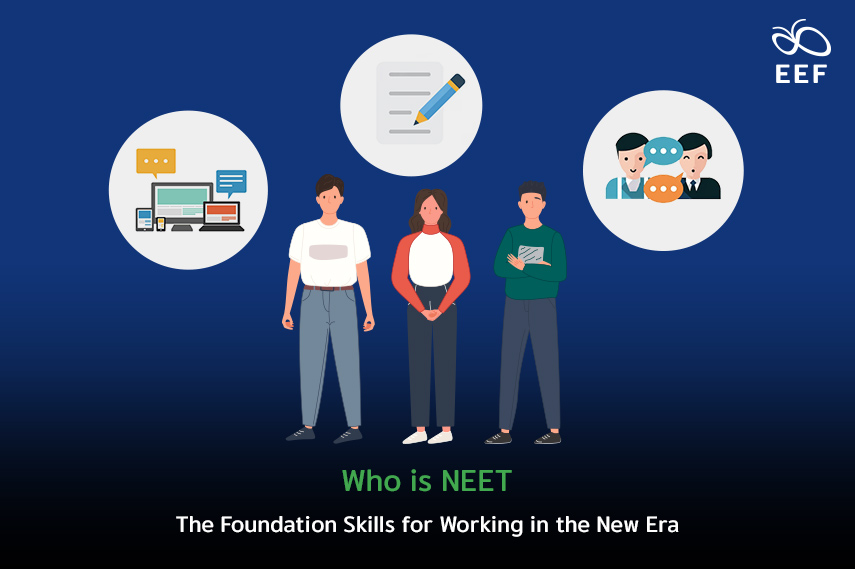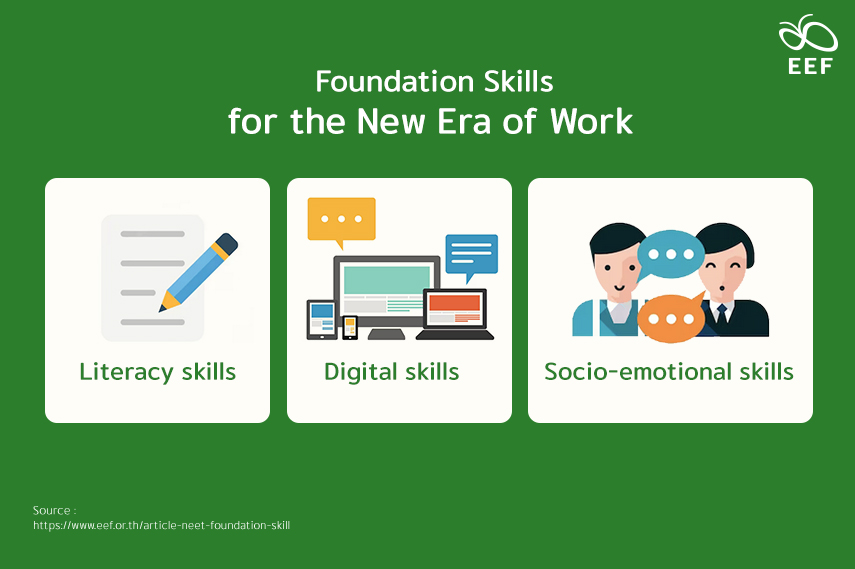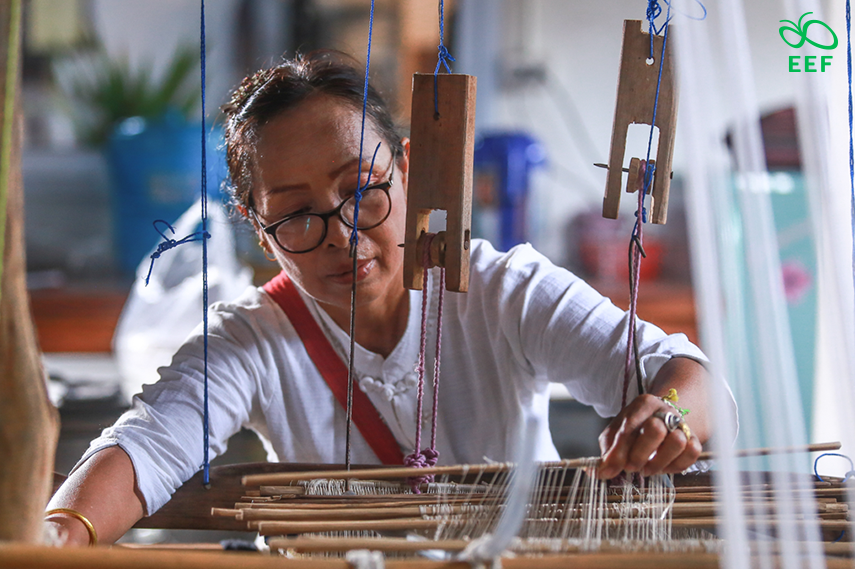
NEET stands for Youth Not in Education, Employment, or Training. It refers to young people aged 15-24 years who are not engaged in any form of education, employment, or vocational training and are not utilizing their full potential.
In 2020, Thailand had a NEET population of up to 1.3 million people, accounting for about 10% of the tax-paying population and approximately 14% of the Thai youth population. These findings were based on the research conducted by the OECD (Adult Skills Assessment in Thailand) in collaboration with the World Bank, Thammasat University, and the National Statistical Office. It was the first survey of its kind focusing on the skills and readiness of the working-age population in Thailand, specifically those aged 15-64 years. Among the NEET population, about 65% were females, with teenage pregnancy being a significant contributing factor.
According to estimates by UNESCO, if these young people do not enter the development process, the issues of out-of-school children and youth will result in substantial economic and social loss to Thailand, amounting to approximately 330 billion baht annually, which is equivalent to 3% of the country’s Gross Domestic Product (GDP).
Digital literacy, reading and writing skills, and socio-emotional skills are considered 3 foundation skills for the modern workforce.

Koji Miyamoto, a Senior Economist for Global Practice, East Asia and Pacific Region, World Bank, mentioned that foundation skills for the new era of work consist of three core areas: 1) literacy skills, 2) digital skills, and 3) socio-emotional skills.
“The power of foundation skills for the new era of work lies in self-development, starting from the initial stage of being able to read and write and progressing towards advanced mechanisms. Digital skills entail the desire to acquire knowledge, understanding various information and news, synthesizing knowledge to enhance personal development, and increasing employability, leading to higher income levels.”
Regarding socio-emotional skills, Mr. Miyamoto explained that they involve the ability to understand and interact with others, understand oneself, empathize, and help others as fellow human beings.
“In addition, these skills also have an impact on self-care in lifestyle and contribute to good health practices, reducing the burden on healthcare personnel and the government budget, and creating citizens who do not pose problems to society.”
“Having a job, good health, and the ability to take care of oneself are necessary in order to develop fundamental work skills in the new era.
‘Because “people” are important resources of a country, if each person has a job, good health, and can take care of oneself, he/she will be ready to navigate through changes, seize opportunities, and manage risks on one’s own. The resulting benefits will not only affect individuals or families but also reflect on the labor market of the country and the socio-economic development of the nation.’

Dr. Supachai Srisuchart, Dean of the Faculty of Economics at Thammasat University, said that in the majority of developing countries, the basic skills of the workforce are not up to the expected standards. Professional skill development aimed at increasing the value of labor does not sufficiently complement the foundation skills. Therefore, vocational development programs need to prioritize basic skills.
‘Basic skills are not only important for hiring specific professions but for all types of work. Therefore, we need to emphasize the importance of basic skills from early childhood through the “Learning for All” approach and ensure rapid implementation. The sooner individuals start developing these basic skills, the more opportunities they will have to achieve their objectives.’

The Community-Based Career Development and Innovation Fund produces individuals who meet the demands of the labor market.
The Office of the Vocational Education Commission has launched projects to promote, support, and assist labor force groups who lack financial resources and opportunities based on community settings (Community-Based Career Development and Innovation Fund). These projects help lift the burden of the crisis, enhance skills, enable individuals to have career plans, and earn income according to their abilities, supporting their self-reliance in livelihood.
Through 117 Career Development Units nationwide, more than 8,503 people have been trained in various professions, including agriculture, processing, crafts and trades, food, entrepreneurship, service and tourism, distribution of goods to assist disadvantaged individuals and low-income earners, skilled labor, the use of technology for the participation of disadvantaged individuals, employment of disadvantaged individuals and low-income earners, data management, curriculum development and training, online sales, music, arts, and culture, among others.
The results include changes in knowledge, attitudes, labor skills, and behavior among youth groups, contributing to an improved quality of life. Most importantly, there is the development of vocational skills, upskilling, and reskilling that align with the needs of the youth group.”
Source: https://www.eef.or.th/article-neet-foundation-skill/

